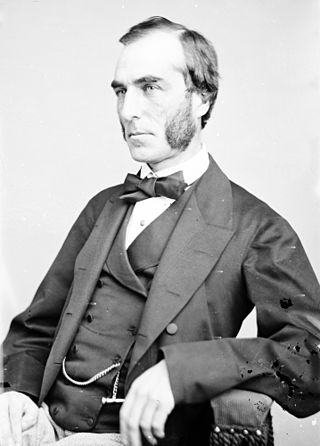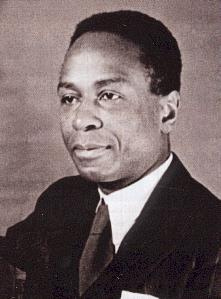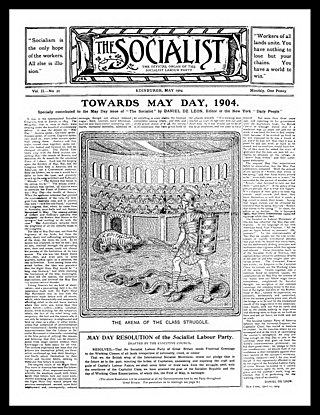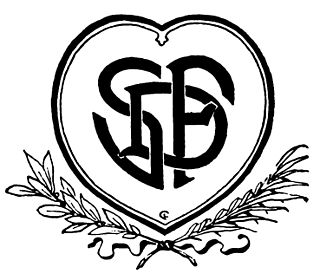
Goldwin Smith was a British historian and journalist, active in the United Kingdom and Canada. In the 1860s he also taught at Cornell University in the United States.
The Conservative Democratic Alliance (CDA) was a political pressure group from the United Kingdom. The CDA referred to itself as the "authentic voice of conservatism". It closed in December 2008.

The Independent Labour Party (ILP) was a British political party of the left, established in 1893 at a conference in Bradford, after local and national dissatisfaction with the Liberals' apparent reluctance to endorse working-class candidates, representing the interests of the majority. A sitting independent MP and prominent union organiser, Keir Hardie, became its first chairman.

Tribune is a democratic socialist political magazine founded in 1937 and published in London, initially as a newspaper, then converting to a magazine in 2001. While it is independent, it has usually supported the Labour Party from the left. Previous editors at the magazine have included Aneurin Bevan, the Minister of Health who spearheaded the establishment of the National Health Service, former Labour leader Michael Foot, and writer George Orwell, who served as Literary Editor.

Raymond William Postgate was an English socialist, writer, journalist and editor, social historian, mystery novelist, and gourmet who founded the Good Food Guide. He was a member of the Postgate family.

George Padmore, born Malcolm Ivan Meredith Nurse, was a leading Pan-Africanist, journalist, and author. He left his native Trinidad in 1924 to study medicine in the United States, where he also joined the Communist Party.
Red Pepper is an independent "radical red and green" magazine based in the United Kingdom. For the first half of its history it appeared monthly, but relaunched as a bi-monthly during 2007.
Straight Left was a left-wing newspaper published from 1979. The phrase was also the generic name given to a political faction of the Communist Party of Great Britain who disagreed with the leadership's emerging Eurocommunist politics, and were responsible for the production of the newspaper. The origins of this faction within the CPGB go back earlier, but it emerged under this name in 1977.
John La Rose was a political and cultural activist, poet, writer, publisher, founder in 1966 of New Beacon Books, the first specialist Caribbean publishing company in Britain, and subsequently Chairman of the George Padmore Institute. He was originally from Trinidad and Tobago but was involved in the struggle for political independence and cultural and social change in the Caribbean in the 1940s and 1950s and later in Britain, the rest of Europe and the Third World.
Raymond Corrick "Ray" Challinor was a Marxist historian of the British labour movement.

The Socialist was the newspaper of the Socialist Labour Party (SLP), a De Leonist organisation in Britain founded in 1903.
The Labour Leader was a British socialist newspaper published for almost one hundred years. It was later renamed New Leader and Socialist Leader, before finally taking the name Labour Leader again.

John Smith Clarke was a British author, newspaper editor, poet, socialist politician, and lion tamer.

During the ten decades since its establishment in 1919, the Communist Party USA produced or inspired a vast array of newspapers and magazines in the English language.
Labour Monthly was a magazine associated with the Communist Party of Great Britain. It was not technically published by the Party, and, particularly in its later period, it carried articles by left-wing trade unionists from outside the Party. It was published from June 1921 to March 1981, and from its inception until his death in 1974 it was edited by leading Party member and theoretician Rajani Palme Dutt, with only a few months absence in 1922 where he was deputised by another leading party figure, Tom Wintringham. The several-page editorial, entitled Notes of the Month, represented official CPGB policy. The intention was to try to keep open a potential channel of communication to Party members in the event of the CPGB being banned at any point.

The Socialist Labour Party was a socialist political party in the United Kingdom. It was established in 1903 as a splinter from the Social Democratic Federation (SDF) by James Connolly, Neil Maclean and SDF members impressed with the politics of the American socialist Daniel De Leon, a Marxist theoretician and leading figure of the Socialist Labor Party of America. After decades of existence as a tiny organisation, the group was finally disbanded in 1980.
The Alliance for Workers' Liberty (AWL), also known as Workers' Liberty, is a Trotskyist group in Britain and Australia, which has been identified with the theorist Sean Matgamna throughout its history. It publishes the newspaper Solidarity.

The Social Democratic Federation (SDF) was established as Britain's first organised socialist political party by H. M. Hyndman, and had its first meeting on 7 June 1881. Those joining the SDF included William Morris, George Lansbury, James Connolly and Eleanor Marx. However, Friedrich Engels, Karl Marx's long-term collaborator, refused to support Hyndman's venture. Many of its early leading members had previously been active in the Manhood Suffrage League.
Frederick Harold Peet was a British communist activist.










